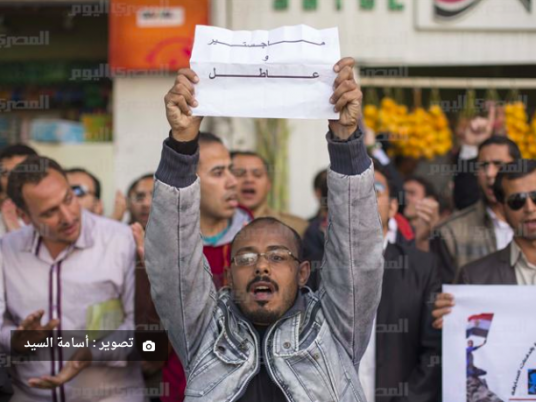
Egypt's constitutional court is to start reviewing on October 1 a controversial law that bans unauthorised protests, officials said on Tuesday.
The law was imposed in November 2013, a few months after the military-led ouster of former Islamist president Mohamed Morsi.
Since then the security forces have arrested hundreds of supporters of Morsi's Muslim Brotherhood movement, as well as secular pro-democracy activists.
Morsi was removed by his then-defence minister and army chief Abdel Fattah al-Sisi on July 3, 2013 amid mass protests demanding his resignation. Sisi became president a year later.
The law sparked an outcry among activists when issued, but it was welcomed by many other Egyptians who had become exhausted from near-constant street activism since a January 2011 uprising toppled former leader Hosni Mubarak.
The law requires protest organisers to inform authorities three days before it takes hold, and gives the interior ministry the right to cancel it if the demonstration is seen as a security risk.
But after the current constitution was ratified in 2014, rights lawyers requested the judiciary to review the constitutionality of the law given that the constitution guarantees the right to protest.
The constitutional court will listen to the lawyers' presentations on October 1, Tarek al-Awady, one of the human rights lawyers behind the appeal, told AFP.
"It (the court) will be able to issue its ruling the same day, or announce a date for its ruling," said Awady.
This law "places restrictions against the right to protest and gives the interior ministry the right to cancel any protest," he said.
"It is a law that effectively bans protesting instead of organise it," said the lawyer.
Thousands of Morsi supporters and Sisi critics were imprisoned in a crackdown and rights groups accuse Sisi's regime of being even more repressive than the Mubarak authorities.




